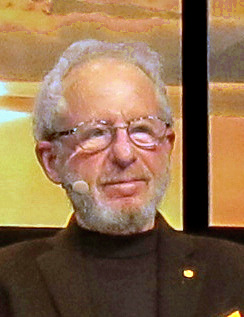A Quote by Alan Kay
I fear - as far as I can tell - that most undergraduate degrees in computer science these days are basically Java vocational training. I've heard complaints from even mighty Stanford University with its illustrious faculty that basically the undergraduate computer science program is little more than Java certification.
Related Quotes
I believe that a core problem with undergraduate education, especially at research universities like Harvard, Stanford, NYU, etc, is that most teaching is done by PhDs, who by temperament, training, interests, and rewards are researchers first. So they spend most of their time and energy probing a snip of a field's cutting edge. In my view, the attributes needed to be a transformative undergraduate instructor are pretty orthogonal to that. It would seem that undergraduate education would be superior if there was a separate track for teaching faculty.
My undergraduate years at the University of Nebraska were a special time in my life: the combination of partying and intellectual awakening that is what the undergraduate years are supposed to be. I went to the university with the goal of becoming an engineer; I had no concept that one could pursue science as a career.
My high school, the Illinois Mathematics and Science Academy, showed me that anything is possible and that you're never too young to think big. At 15, I worked as a computer programmer at the Fermi National Accelerator Laboratory, or Fermilab. After graduating, I attended Stanford for a degree in economics and computer science.
Shiv Nadar University has five schools with 16 departments offering 14 undergraduate, 10 master's and 13 doctoral programmes. The demand for engineering courses - computer science, engineering, electronics, communication engineering, mechanical engineering - is slightly on the higher side compared to other engineering courses.
The term "informatics" was first defined by Saul Gorn of University of Pennsylvania in 1983 (Gorn, 1983) as computer science plus information science used in conjunction with the name of a discipline such as business administration or biology. It denotes an application of computer science and information science to the management and processing of data, information and knowledge in the named discipline.
What it is now is basically, I'll sit on my computer; I basically kind of play the computer as an instrument, I guess you could say. I guess I play the Mac. And how it works is, say - I have a program called 'Ableton Live.' And, you know, you'll open it up, and it's just blank. There's nothing there. And then you start.



































